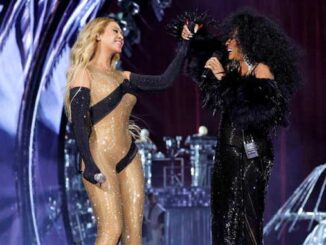
Data Staff Report
Supporters of a constitutional amendment ending split jury verdicts are celebrating their victory in what was a rare alliance of conservative and progressive organizations working together to end a practice with roots in post-Civil War racism.
The amendment takes effect Jan. 1 and will leave Oregon as the only other state allowing split verdicts. It reverses a Jim Crow-era practice that made it easier to imprison non-whites by allowing as few as 10 members of a 12-member jury to convict defendants in felony cases not involving death sentences.
The amendment was pushed through the Louisiana Legislature by Sen. J.P. Morrell, a New Orleans Democrat. It received more than the necessary two-thirds approval in the House and Senate and drew strong support from factions rarely on the same page: On the right, supporters included the Christian conservative Louisiana Family Forum and Americans for Prosperity, a conservative organization funded by billionaire Charles Koch.
On the left, supporters included the American Civil Liberties Union and Innocence Project New Orleans. Supporters of the change noted the wide-ranging support the measure received as they celebrated their victory Tuesday.
“We have shown the nation that the people they are used to seeing fight against each other will come together for the common cause of freedom. That we will fight side by side for the liberty of our neighbors,” said Norris Henderson, state director of the Unanimous Jury Coalition.
The state director for Americans for Prosperity said people in the state can feel better about the justice system after the amendment’s passage.
“This amendment protects the rights of the accused and ensures that any verdict handed down is truly beyond a reasonable doubt. Passage of this amendment is proof that no matter the ideology, we can come together and change our society for the better,” John Kay said.
Some district attorneys and their supporters in the Legislature opposed the measure, not wanting to make prosecutors’ jobs more challenging.T he Louisiana District Attorneys Association stayed neutral, and a number of district attorneys supported the measure.
Ed Tarpley, former district attorney in Grant Parish, championed the amendment.
“Once you know the history of this law, then you have to vote to repeal it,” Tarpley told The Press Club of Baton Rouge in July. “This is something that is a stain on the legacy of our state.”
He was referring to the split-jury policy’s post-Civil War roots in white supremacy.
But a racist legacy wasn’t the only reason supporters sought to overturn non-unanimous verdicts. There was also a view shared by those across the political spectrum that government doesn’t always get things right.
It was an attitude summed up in words flashing across computer screens in a 30-second online add by AFP. “Imagine your child is charged with a crime she didn’t commit,” the ad said. “Multiple jurors agree she is innocent but the government sends her to prison anyway. It happens in Louisiana.”
Critics of the old system said that the non-unanimous jury verdict law said it was based in Jim Crow-era racism.
“In 1898 the threshold was nine to three. And that was created to make it easier to convict Black folks. But also it was created to nullify the Black vote in the event that if African Americans were to get on the jury, their votes could be discarded and their voices simply could not count,” William Snowden, an attorney at the Public Defender’s Office, said.
Recommended For You.




Be the first to comment